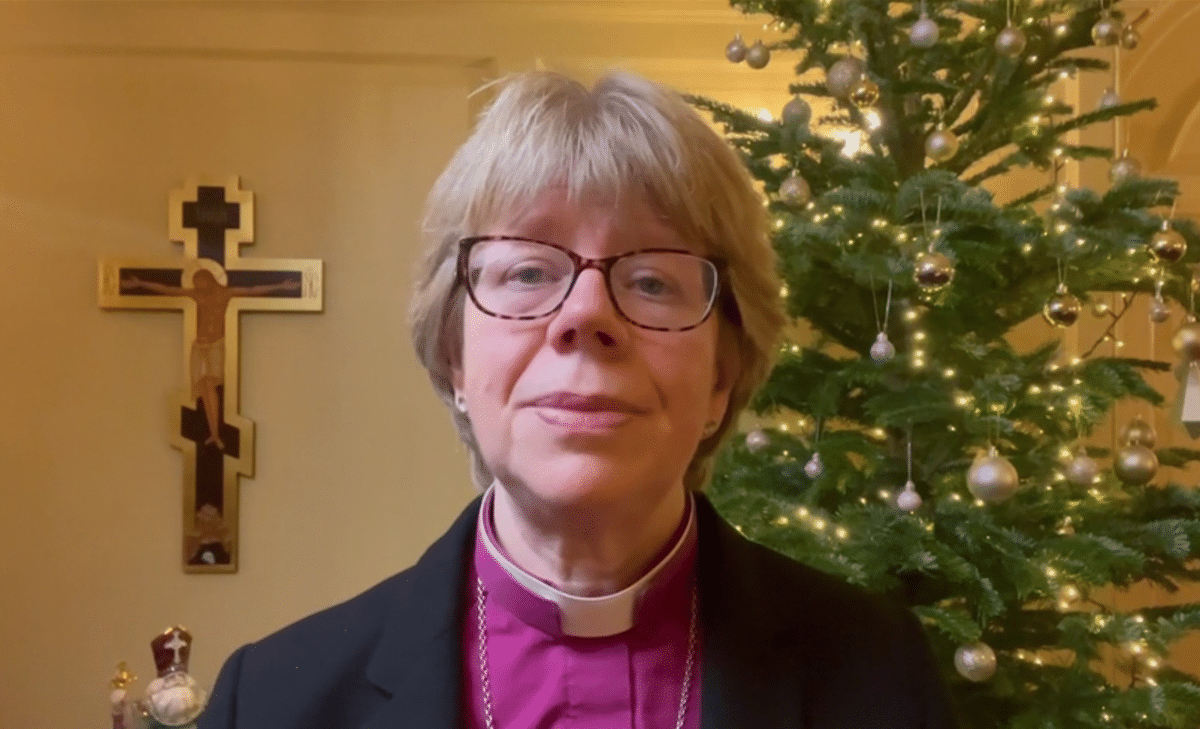Bishop Sarah shares a Christmas message for all in the Diocese of London.
“I’m sure we’ve all found ourselves saying recently what a distressing year this has been. Conflicts continue across the globe, tearing people from their homes and separating them from loved ones. People are still compelled to risk crossing dangerous seas in unsafe boats, to escape violence and persecution. Asylum-seekers wait endlessly for their applications to be processed, as the incomprehensible threat of being sent elsewhere hangs over them. Those fortunate ones who are granted refugee status are not always given sufficient time to find accommodation, and are at risk of homelessness.
As Christians, what do we say into the reality of trauma, distress and insecurity which mars the lives of so many? How do we speak of hope?
The Christmas story – the mind-blowing news of the incarnation, of God’s embodiment among us – is not without trauma. Understandably, nativity plays skip over some of the detail. But we know that Jesus’s parents fled to what they hoped would be a safer place, in a desperate bid to protect their child, and stayed until they believed themselves to be safe.
The story on which we build our faith does not speak of hope whilst ignoring suffering. It speaks hope into that suffering. It speaks of light in darkness. Through the sheer vulnerability and yet the extraordinary tenacity of a newborn baby, it speaks of the cost and the risk of God’s utter commitment to the world and its people.
I have found myself quoting the poet Emily Dickinson in recent days.
“Hope” is the thing with feathers –
That perches in the soul –
And sings the tune without the words –
And never stops – at all …
The ‘thing with feathers’ is such a beautiful metaphor for hope, because hope is fragile and yet so strong. It is tiny – yet makes such a huge difference by its presence. In the poem, hope, the tiny bird, keeps people warm in the chillest land and on the strangest sea. It never gives up. And so we learn to speak of hope with sensitivity and with care, recognising that life is precarious and difficult for many people. Yet we also speak of hope with quiet confidence and with determination.
Yet we can only speak of hope at all, if we are doing something to bring it about. Across this Diocese there are countless signs of God’s hope in a world which longs for healing. In foodbanks and debt counselling services, where vital support is given to those struggling most with the cost of living crisis; in initiatives which challenge modern day slavery; in the hospitality offered to those who are displaced from their homes, their countries, their families of origin. And in worship which gives us a taste of God’s future brought into the present, and which points to God’s presence in the incarnation and in the tiniest details of creation and of human connection.
I pray that this Christmas we may know the hope of God’s healing love and be bearers of that love and hope to others. “
